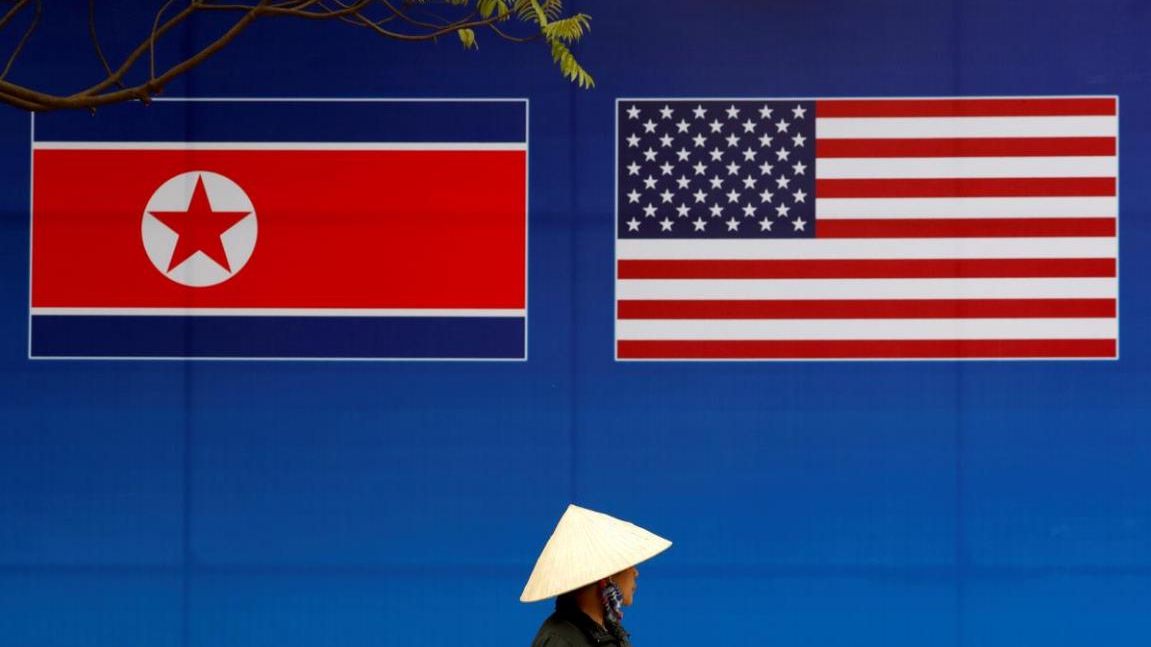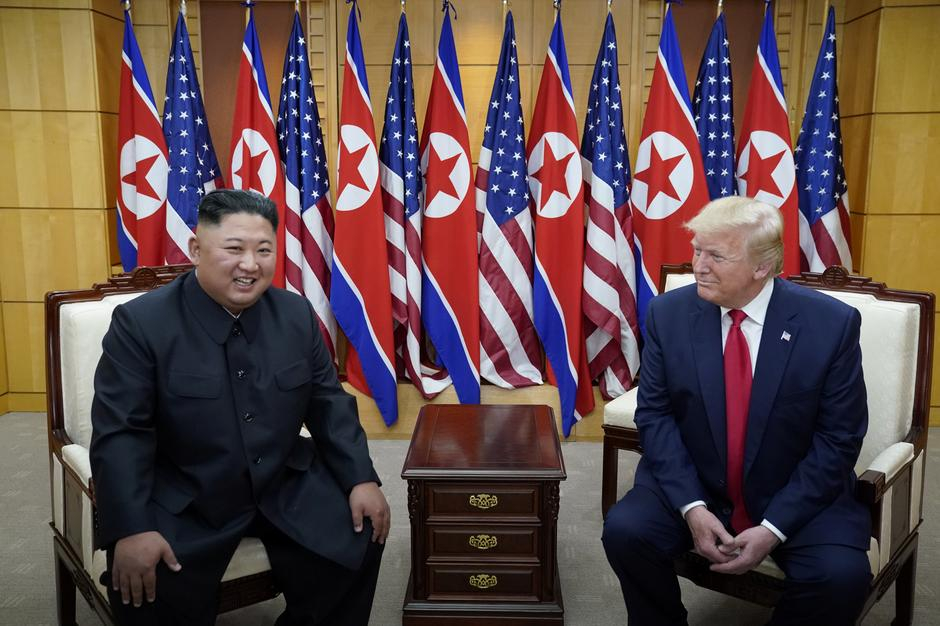

The United States would hope to see a freeze on production in Pyongyang's nuclear program as the start of a process of denuclearization, the U.S. State Department said on Tuesday, ahead of fresh talks with the Democratic People's Republic of Korea (DPRK) anticipated to resume this month.
"(A) Freeze, you know, that would never be the resolution of a process. That would never be the end of a process," U.S. State Department spokeswoman Morgan Ortagus told a regular news briefing. "That would (be) something that we would certainly hope to see at the beginning. But I don't think that the administration has ever characterized a freeze as being the end goal. That would be at the beginning of the process."
Yonhap reported that the statement could signal the U.S.' increasing willingness and resilience to adopting a step-by-step approach to incremental denuclearization.
"We obviously clearly want to see the complete elimination of WMDs (weapons of mass destruction) in North Korea (DPRK)," Ortagus said. "As the president has said many times, he hopes Kim Jong-un and the North Korean (DPRK) people see the brighter future and the brighter vision that he has for those people."

U.S. President Donald Trump meets with DPRK leader Kim Jong Un at the Demilitarized Zone (DMZ) separating the two Koreas, in Panmunjom, Republic of Korea, June 30, 2019. /Reuters Photo
Comments followed that the U.S. might have softened its stance in the hopes to create a foundation for the next round of talks.
U.S. President Donald Trump and DPRK leader Kim Jong Un had a surprise meeting on June 30 in the Demilitarized Zone (DMZ) and agreed to resume a working-level dialogue, stalled since a failed summit in Vietnam in February due to differences over the scope of DPRK's denuclearization and sanctions relief from the U.S.
Read More:
Will the historic Kim-Trump summit lead to an equally historic breakthrough?
Infographic: Three historic summits between Donald Trump and Kim Jong Un
Opinion: Talking is good, but progress is needed
The U.S. position in earlier negotiations with the DPRK had centered around an "all or nothing" approach, insisting on a "complete, verifiable and irreversible denuclearization (CVID)" from the DPRK before providing any sanctions relief in return.
The DPRK, on the other hand, expects a "phased," simultaneous and "step-by-step" approach. It halted nuclear tests, dismantled some of its nuclear facilities and returned remains of U.S. soldiers and three American citizens arrested in the DPRK, waiting on the U.S. to take corresponding measures by lifting its harsh economic sanctions.

Chinese President Xi Jinping meets with DPRK leader Kim Jong Un in Pyongyang, DPRK, June 20, 2019. /Xinhua Photo
China always stays committed to resolving the issue through dialogue and approaching the denuclearization of the Korean Peninsula in a phased and synchronized fashion. According to Chinese State Councilor and Foreign Minister Wang Yi, "Specific, interlinked and mutually reinforcing steps will be identified and taken in sequence, starting with the easier ones and monitored in a way agreed to by the parties."
Chinese Foreign Ministry spokesperson Geng Shuang said in a regular press conference on July 1 that China supports the resumption of the U.S.-DPRK negotiations in the near term.
"Under the current circumstances, we hope relevant parties will seize opportunities, meet each other halfway, explore effective ways to resolve each other's concerns and work for new progress in the denuclearization and political settlement process of the Korean Peninsula," the spokesperson said.
U.S. Secretary of State Mike Pompeo has said the fresh talks would likely happen "sometime in July... probably in the next two or three weeks."
(Cover: A person walks past a banner showing DPRK and U.S. flags ahead of the U.S.-DPRK summit in Hanoi, Vietnam, February 25, 2019. /Reuters Photo)
(With input from Reuters, Yonhap)

Copyright © 2018 CGTN. Beijing ICP prepared NO.16065310-3
Copyright © 2018 CGTN. Beijing ICP prepared NO.16065310-3